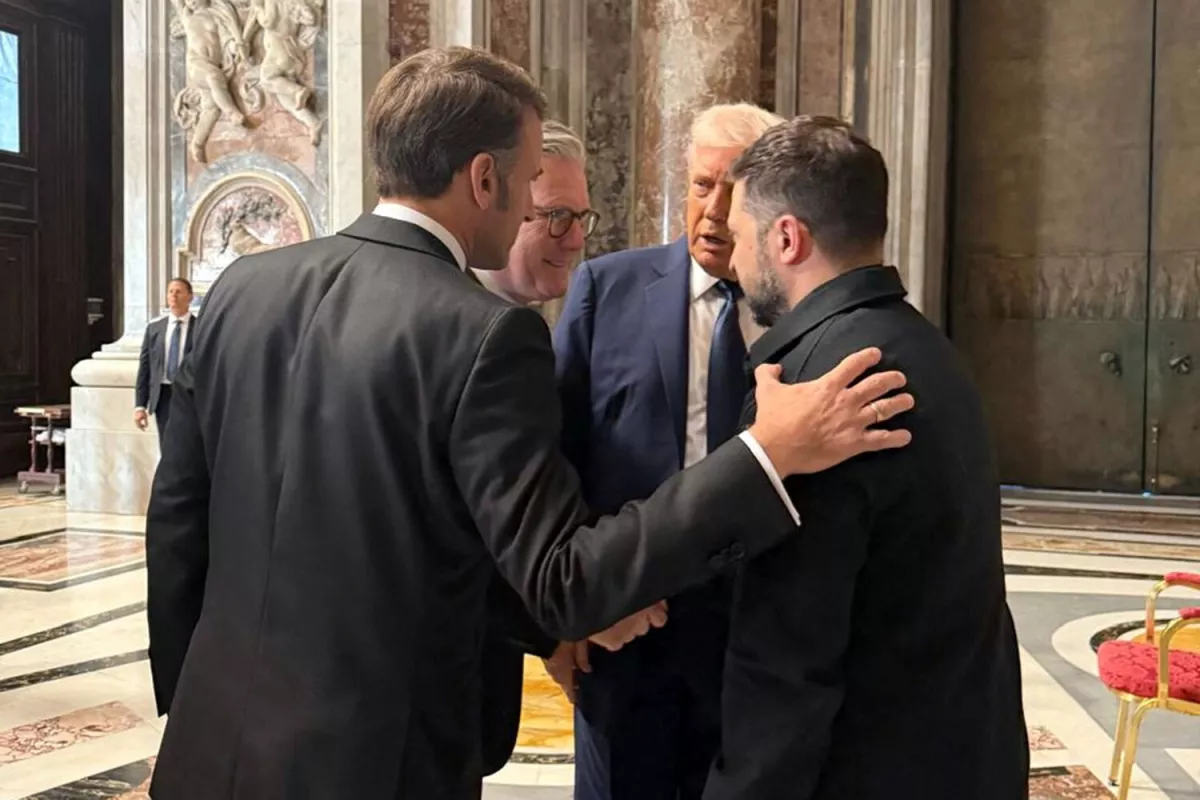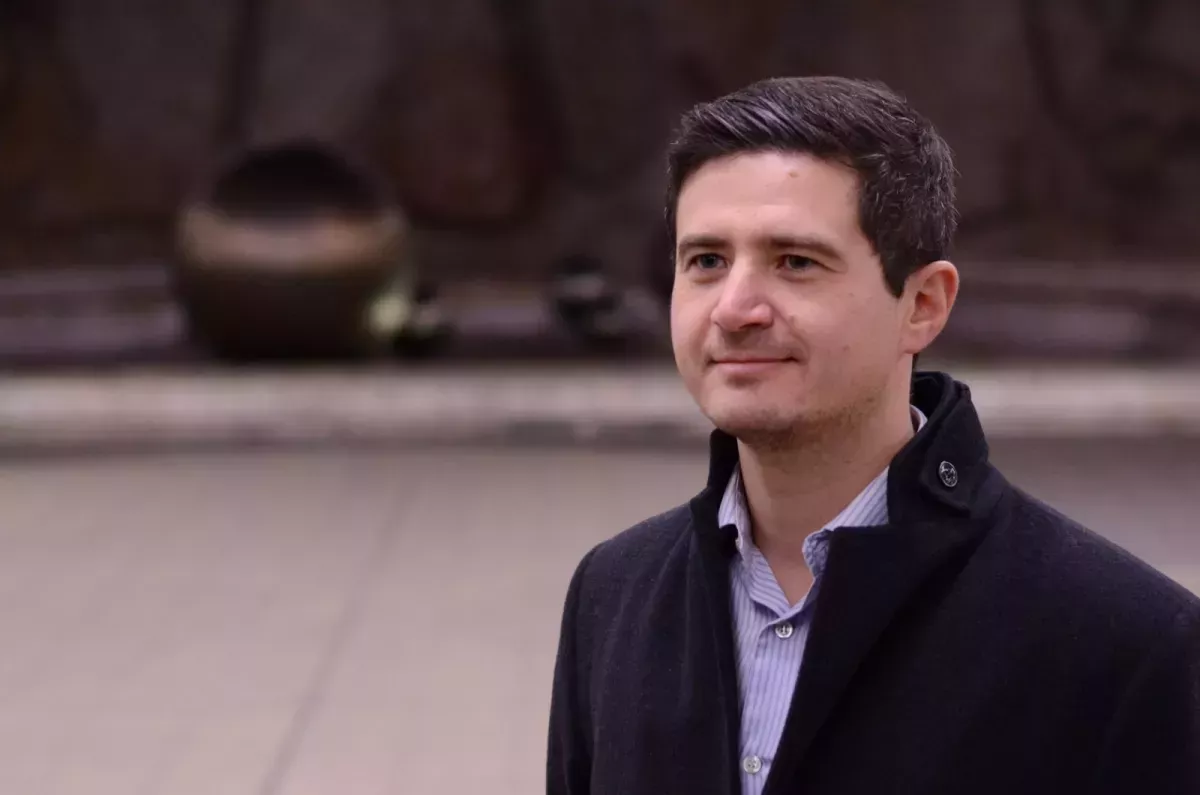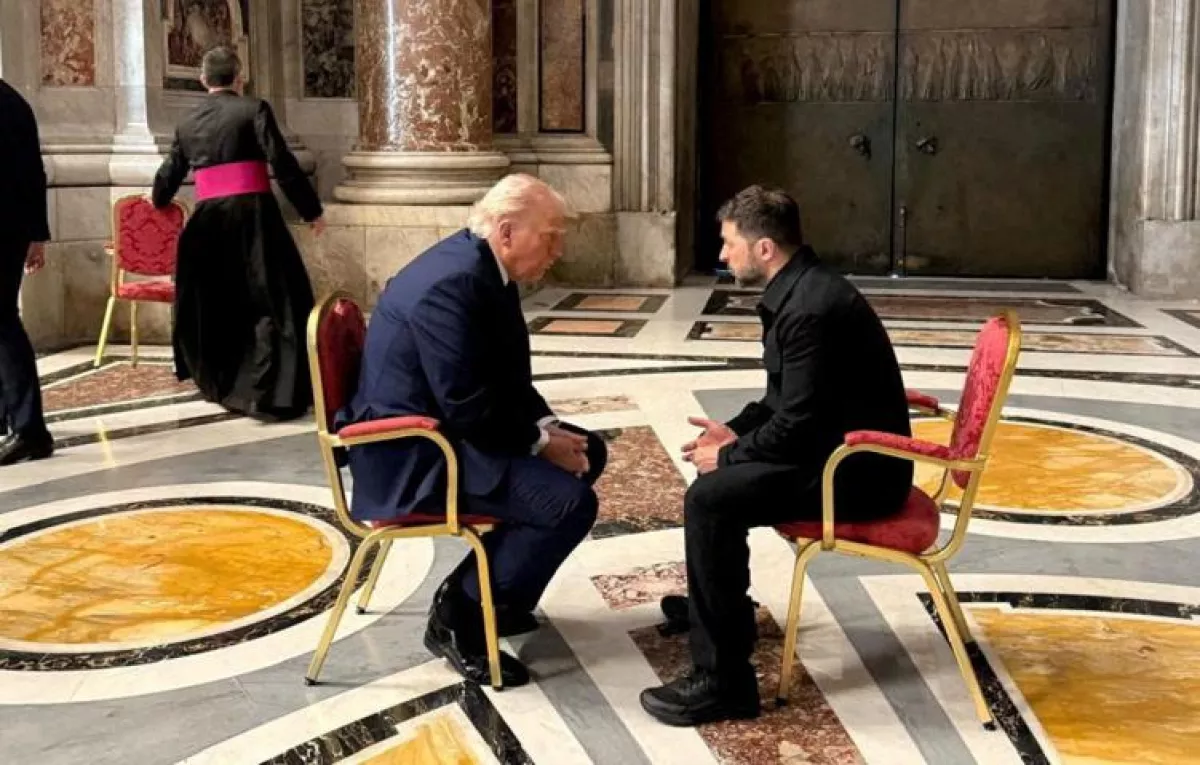France loses influence, and Macron loses face Expert opinions on Caliber.Az
The Italian press has accused French President Emmanuel Macron of attempting to promote his preferred candidate for the position of Pope. The allegations refer to several meetings between the French leader and representatives of the influential Catholic movement Sant’Egidio. According to a number of European analysts, this scandal has once again exposed Macron’s ambitions, revealing that he stops at nothing to achieve his goals.

After a series of political failures, Emmanuel Macron’s standing rapidly deteriorates. Footage from a recent meeting in Rome has gone viral worldwide, capturing the moment when Donald Trump brusquely cut off Emmanuel Macron’s attempt to interject in a conversation with Volodymyr Zelenskyy, reportedly stating: “There are only two seats here.” The episode has become a fitting metaphor for the French president’s current status — stripped of political weight, yet still eager to insert himself into the global agenda. Today, key decisions on the world stage are increasingly made without consulting Paris — and without Macron’s involvement.
Foreign experts shared their views with Caliber.Az on the ongoing political erasure of Emmanuel Macron.

Aleksey Chernov, a Belarusian political analyst and chief expert at the Centre for Analytical Forecasting, believes that Macron’s policies should not be viewed as the result of pragmatic calculations or strategic thinking. In his view, they resemble more of a theatrical performance aimed at a grateful audience.
“All of Macron’s attempts to present himself as the new leader of Europe are ending in crushing failure. His calls to arm Ukraine are not having the desired effect. As a politician, he has been completely excluded from the negotiating table between Washington, Kyiv, and Moscow. It’s a very comical and paradoxical situation.
The visit to Madagascar in April 2025 became yet another indicator of Paris’s clumsy foreign policy. Macron is now attempting to use the ‘carrot’ rather than the ‘stick,’ shifting away from failed neo-colonial pressure tactics in favour of investment-driven partnerships. Madagascar was not chosen at random. With a population of 28 million, where over two-thirds of citizens lack consistent access to electricity, the country is both a humanitarian crisis zone and an attractive market for green energy initiatives.
For France, this is an opportunity to rebrand itself as a partner in sustainable development — a particularly urgent task following the successful COP29 summit in Baku. Paris is eager to justify its absence from the climate forum and reclaim its image as a global leader in climate diplomacy.

Many experts view this visit as an attempt to disguise France’s loss of real influence in Africa. Macron’s trip to Madagascar is far from a triumph — it is more of a forced move amid the rapid erosion of France’s former power architecture on the continent.
The key point here is that Paris is effectively selling its presence in exchange for a stake in the energy infrastructure, desperately trying to cling to any remaining lever of influence in a region where it has long been displaced by China, India, and Türkiye. France has already lost its strategic footholds in Mali, Burkina Faso, and Niger, where its troops have been expelled. Even in Chad, the French military presence is becoming increasingly precarious.
France is running out of steam — politically, strategically, and symbolically. The reputational damage is substantial: African public opinion, which once regarded France as a “guarantor of stability,” now reads headlines about its humiliating retreats, embassy closures, and growing protests against neo-colonialism.
An attempt to shift the narrative was undercut by a statement from Professor Douglas Yates, a political scientist at the American University of Paris. In an interview with a local media outlet, he described Macron’s actions as futile: ‘France has lost the critical mass of influence. It cannot compete with China. It simply lacks the resources.’
These words perhaps best capture the reality France now faces,” Chernov concluded.

Israeli journalist and head of the international relations commission of the Israel Journalists Union, Rostislav Goltzman, notes that following the conflict between Volodymyr Zelenskyy and Donald Trump in the Oval Office, French President Emmanuel Macron attempted to seize the initiative. At that time, statements emerged suggesting that Europe no longer needed the United States and was prepared to handle threats on its own. Macron declared France’s readiness to assume the role of Europe’s leader and proposed a “nuclear umbrella,” reminding the world that France possesses nuclear weapons.
“This happened against the backdrop of Europe’s sharp discontent with Trump’s position, in which he claimed that European prosperity was made possible solely by American military protection since World War II. That statement caused significant irritation across Europe. Macron sought to capitalise on the moment — particularly given the cooling relations between the U.S. and Ukraine.
France attempted to assert a new role for itself in Europe — but that effort quickly fell apart. Why? As reported by Reuters, the heads of France’s largest energy companies began to voice concerns that, while the United States is currently supporting them with energy supplies, particularly liquefied natural gas (LNG), they fear becoming dependent on American deliveries as a tool of geopolitical leverage.
As an alternative, they proposed a return to Russian gas — a move that appeared especially paradoxical against the backdrop of the European Union’s public commitment to fully phase out Russian energy imports by 2027.

Ukraine, for its part, made an obvious choice — strengthening its relationship with the United States. In the context of war and immense pressure, there were virtually no viable alternatives. This was also when that rather amusing moment occurred: as Trump and Zelenskyy engaged in conversation, Macron repeatedly tried to insert himself, darting from one side to the other. To put it mildly, it looked unconvincing.
Ultimately, Ukraine and the U.S. reached agreements on several strategically important areas, including critical minerals and rare earth metals. According to independent experts, the deal is mutually beneficial — and Ukraine clearly did not come out on the losing end.
France’s position in this situation is telling. Macron tried to make an impression, delivering bold statements about leadership and replacing the U.S., but it quickly devolved into rhetoric that some might interpret as pro-Russian — and, under current circumstances, even anti-Ukrainian, especially given Macron’s earlier promises to support Ukraine.
Frankly, nothing else could have been expected from such flamboyant declarations — Macron’s pathetic clownery merely amuses the public," Goltzman concluded.








